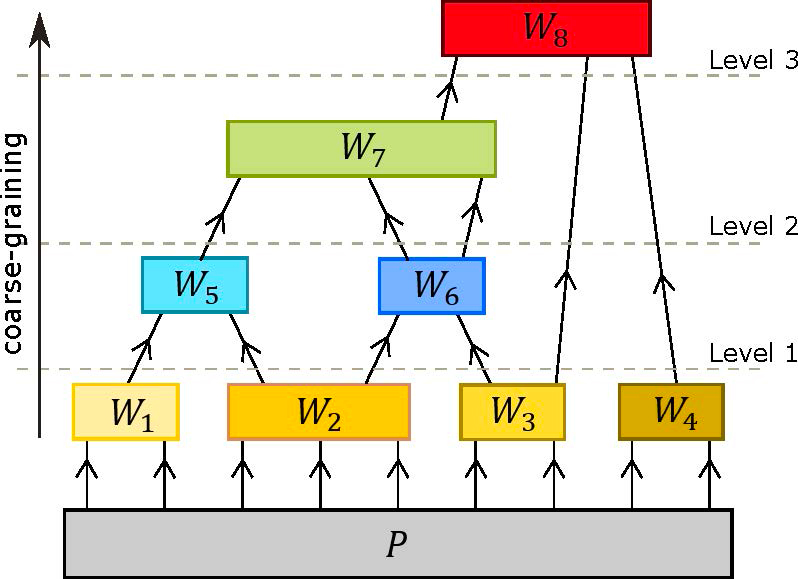Certain quantum features with no classical counterpart, such as entanglement and the violation of Bell inequalities, arise as collective properties of systems with several components and cannot be detected by looking at the individual parts. Recognizing whether a given system exhibits such features is central in the study of quantum fundamentals and quantum information science but is generally a very complicated problem, often even intractable. In our work, we propose a novel method to detect quantum properties. While existing methods can address systems with just a few components, our approach is scalable and can be applied to systems with hundreds of parts.
Our approach exploits an important insight from statistical physics: A large system can often be coarse grained to a smaller one in ways that leave important global properties intact while discarding small-scale details. We develop new classes of coarse-graining transformations, called connectors, which preserve the feature of interest. The net result of these transformations is to map the original problem of detecting quantum properties to a simpler one with a tractable number of components.
While we showcase our method by constructing specific classes of connectors for detecting entanglement and Bell nonlocality, the formalism is remarkably general: It can be applied to identify collective global properties in any system’s network. We therefore expect that connector theory will find application in other areas of quantum theory.
